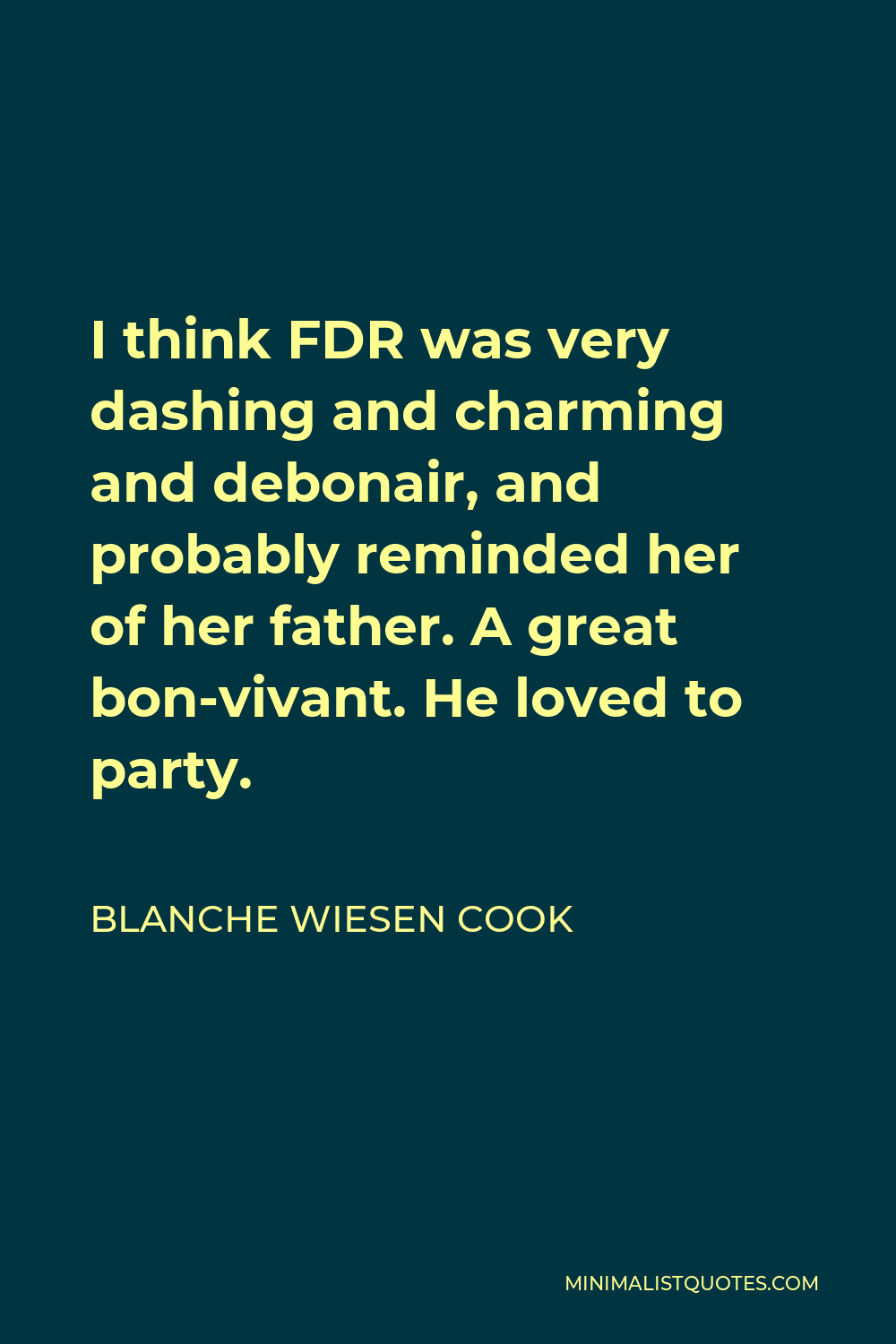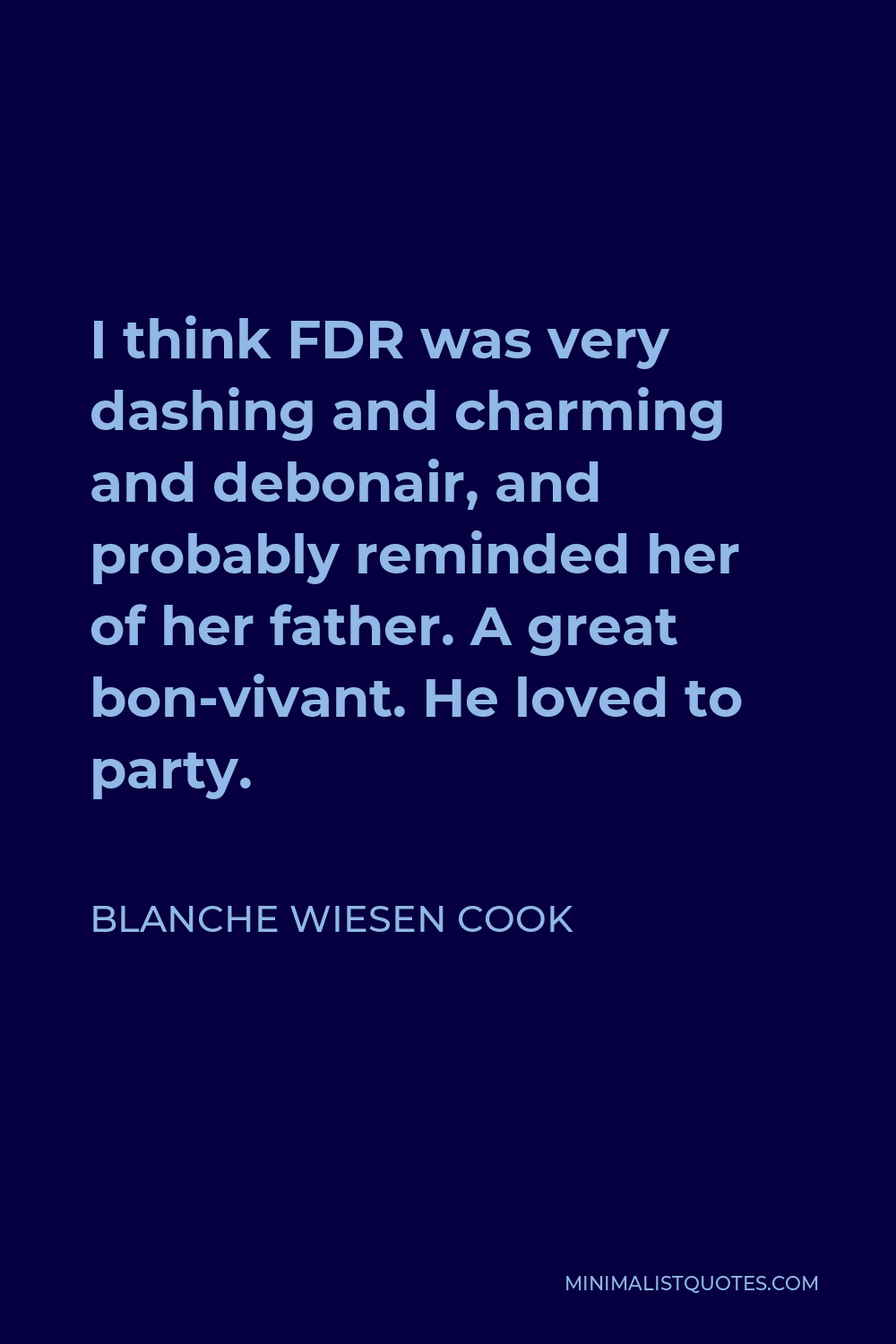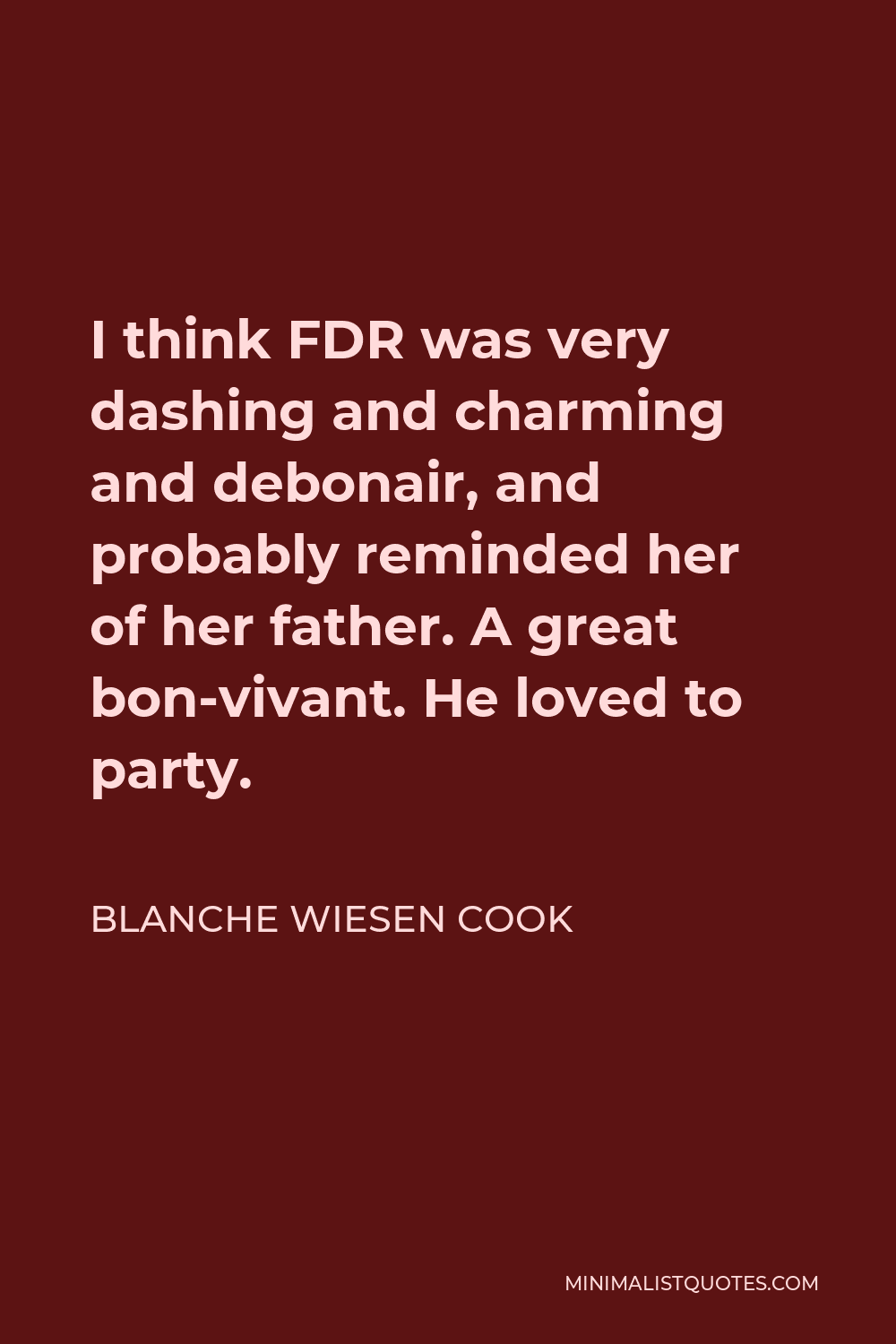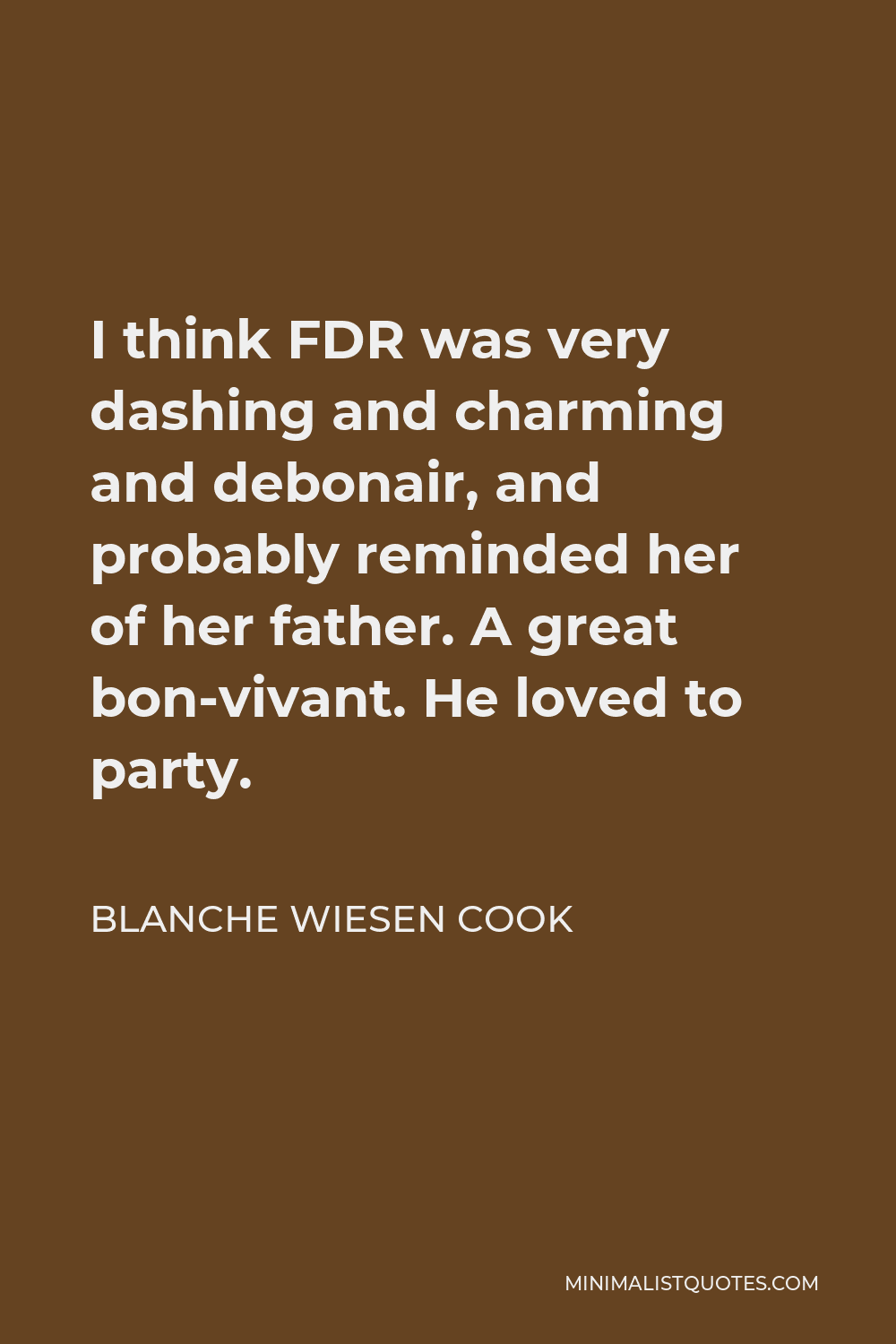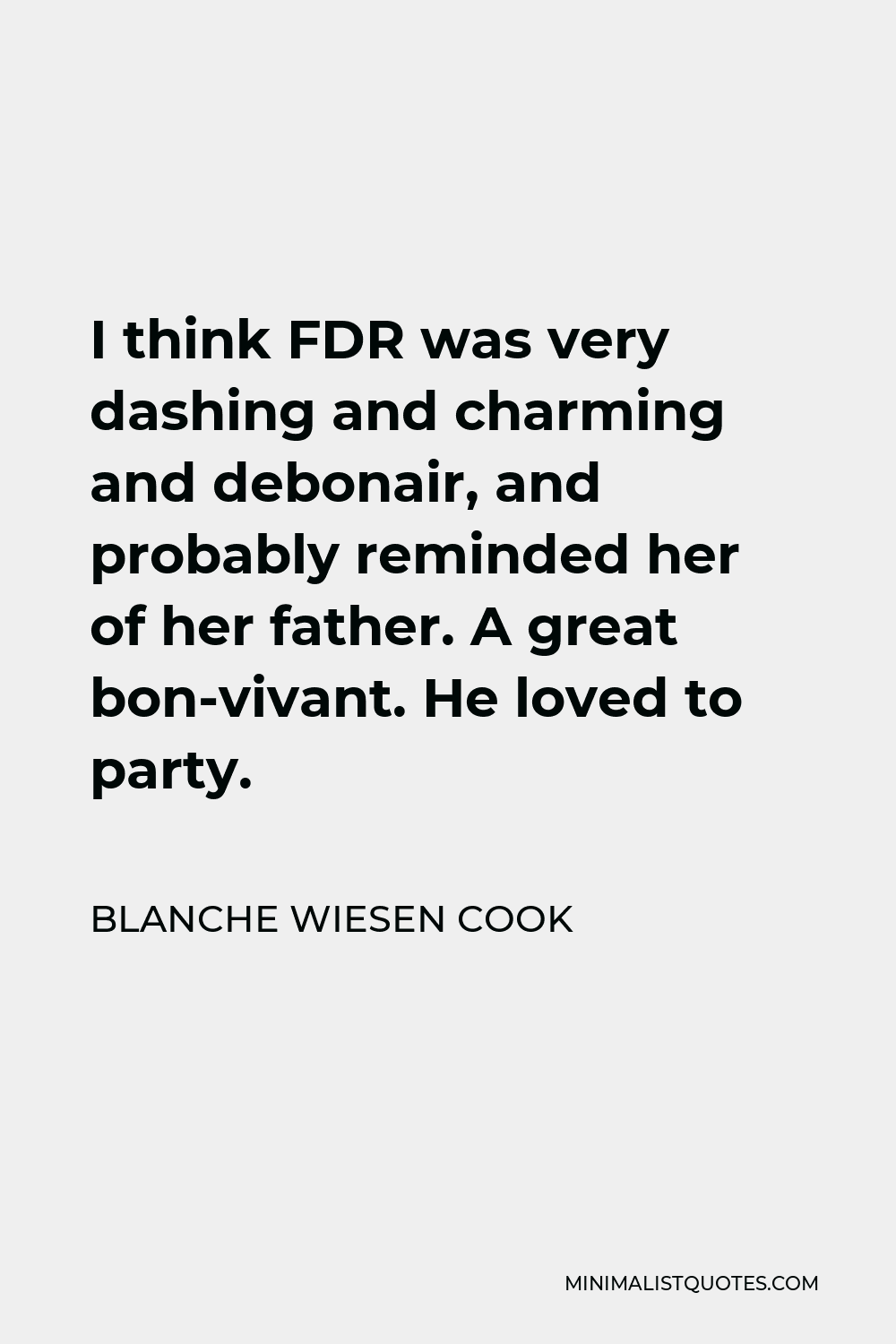She’s very warm about her grandmother, even though, if you look at contemporary accounts, they’re accounts of horror at the Dickensian scene that Tivoli represents: bleak and drear and dark and unhappy. But Eleanor Roosevelt in her own writings is not very unhappy about Tivoli.
BLANCHE WIESEN COOKI think FDR was very dashing and charming and debonair, and probably reminded her of her father. A great bon-vivant. He loved to party.
More Blanche Wiesen Cook Quotes
-





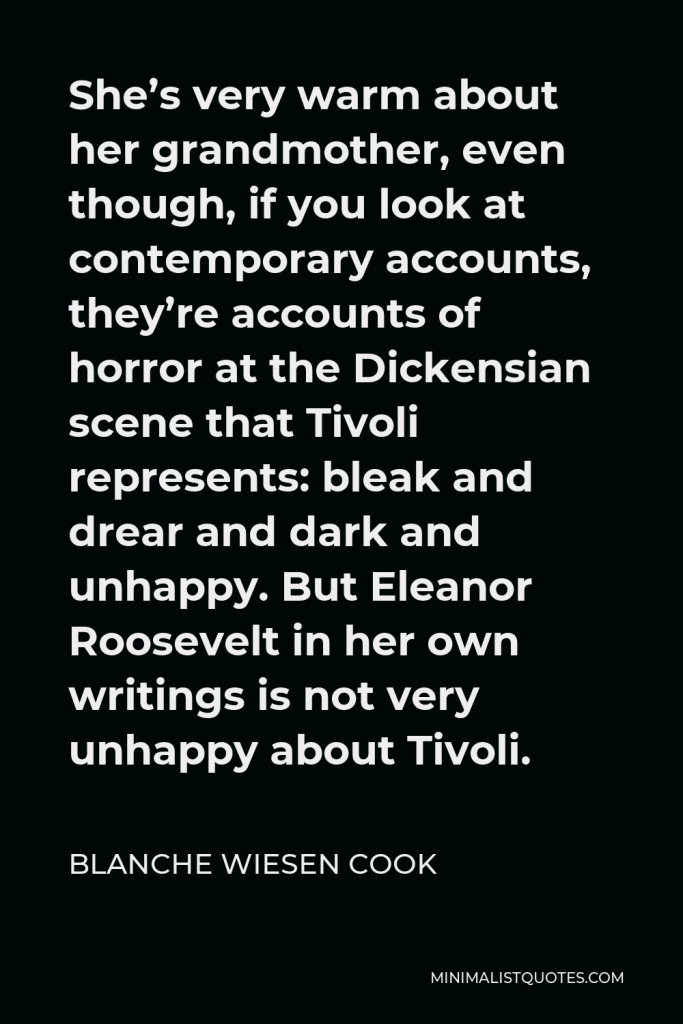

-





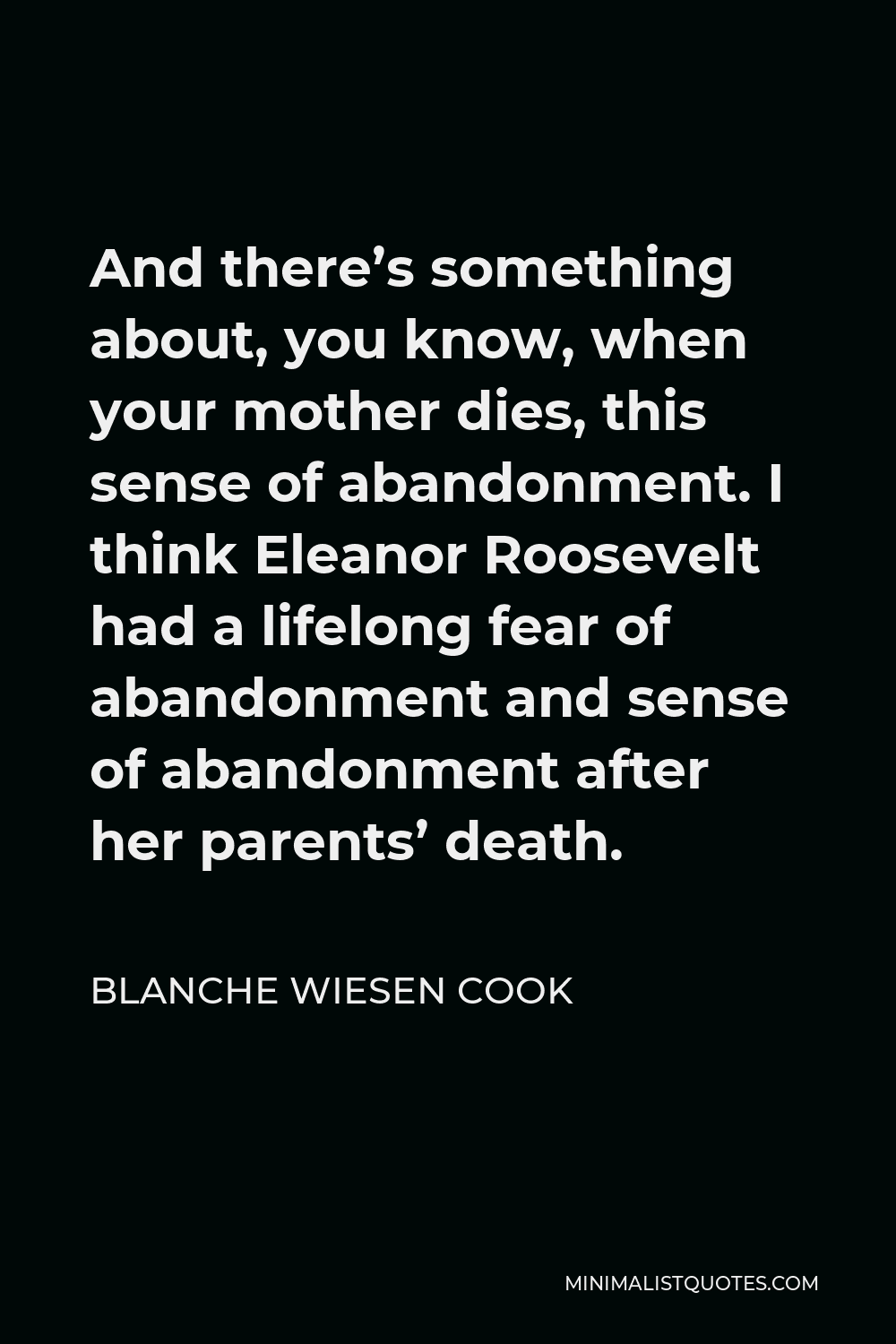
And there’s something about, you know, when your mother dies, this sense of abandonment. I think Eleanor Roosevelt had a lifelong fear of abandonment and sense of abandonment after her parents’ death.
BLANCHE WIESEN COOK -





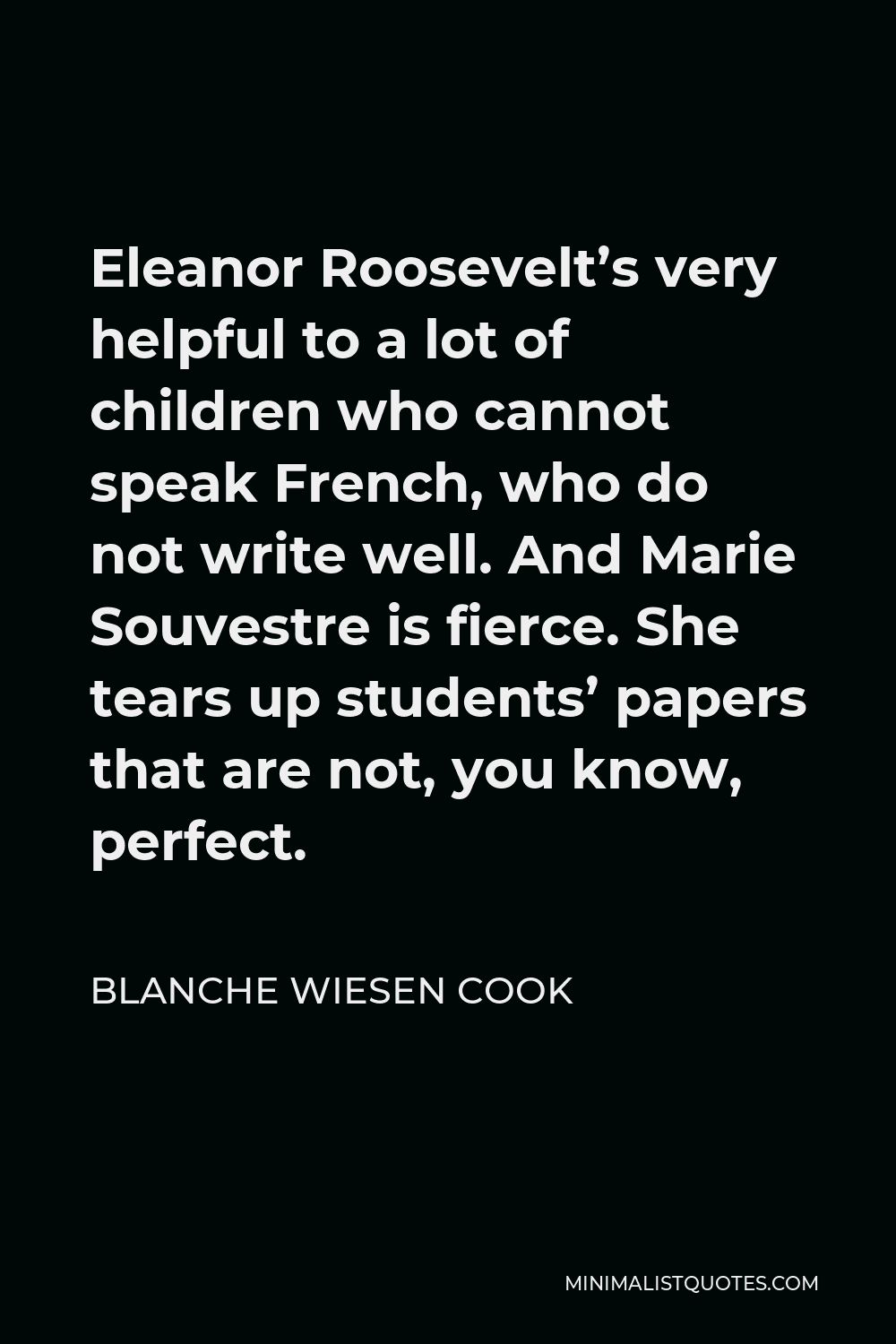
Eleanor Roosevelt’s very helpful to a lot of children who cannot speak French, who do not write well. And Marie Souvestre is fierce. She tears up students’ papers that are not, you know, perfect.
BLANCHE WIESEN COOK -





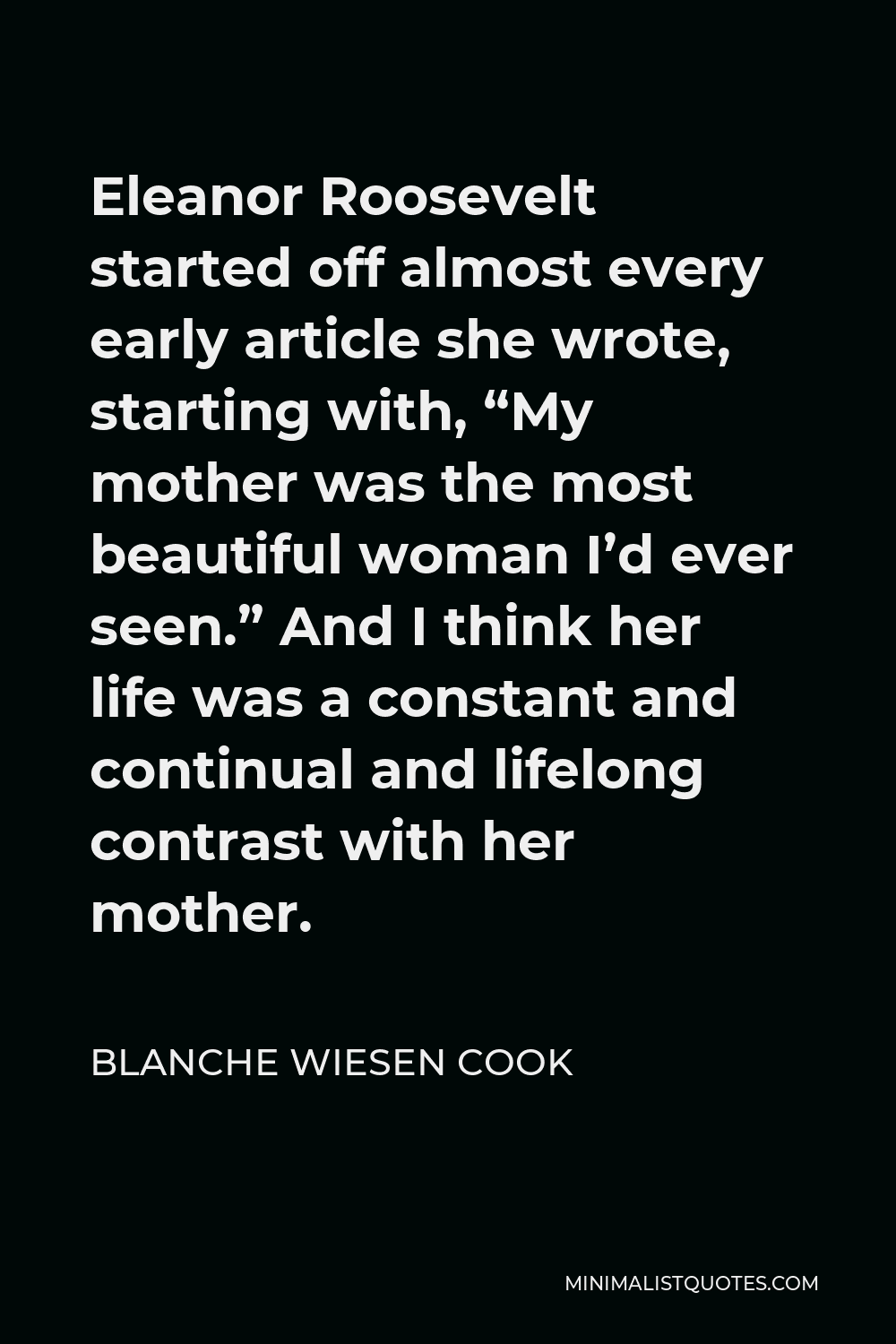
Eleanor Roosevelt started off almost every early article she wrote, starting with, “My mother was the most beautiful woman I’d ever seen.” And I think her life was a constant and continual and lifelong contrast with her mother.
BLANCHE WIESEN COOK -





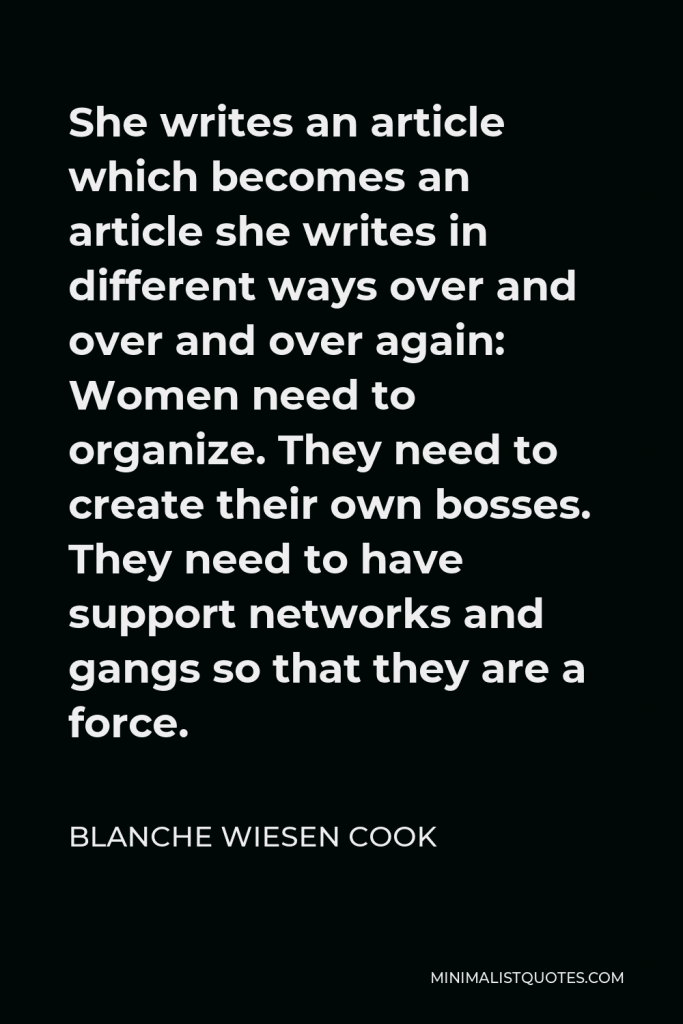

She writes an article which becomes an article she writes in different ways over and over and over again: Women need to organize. They need to create their own bosses. They need to have support networks and gangs so that they are a force.
BLANCHE WIESEN COOK -





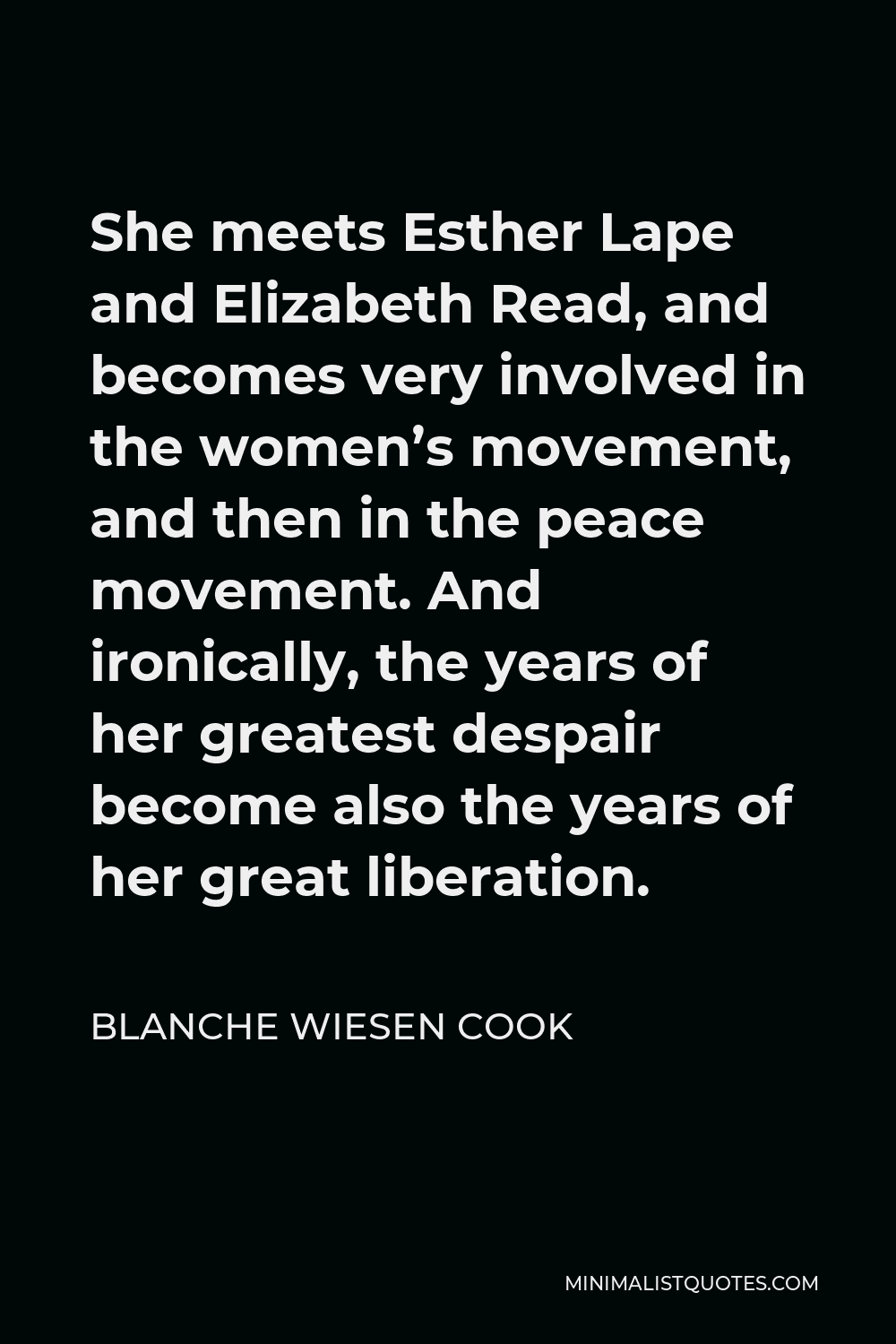
She meets Esther Lape and Elizabeth Read, and becomes very involved in the women’s movement, and then in the peace movement. And ironically, the years of her greatest despair become also the years of her great liberation.
BLANCHE WIESEN COOK -





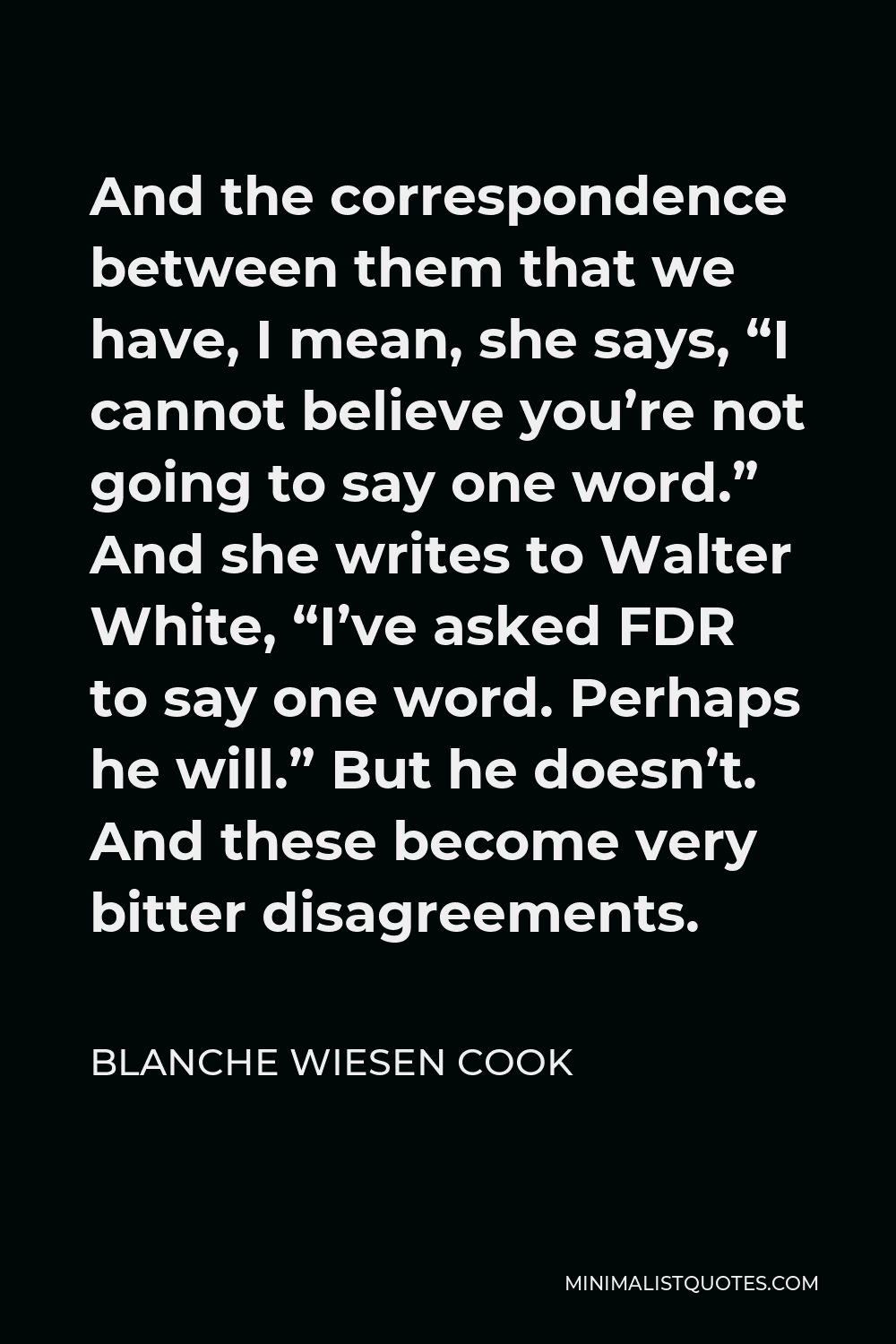
And the correspondence between them that we have, I mean, she says, “I cannot believe you’re not going to say one word.” And she writes to Walter White, “I’ve asked FDR to say one word. Perhaps he will.” But he doesn’t. And these become very bitter disagreements.
BLANCHE WIESEN COOK -





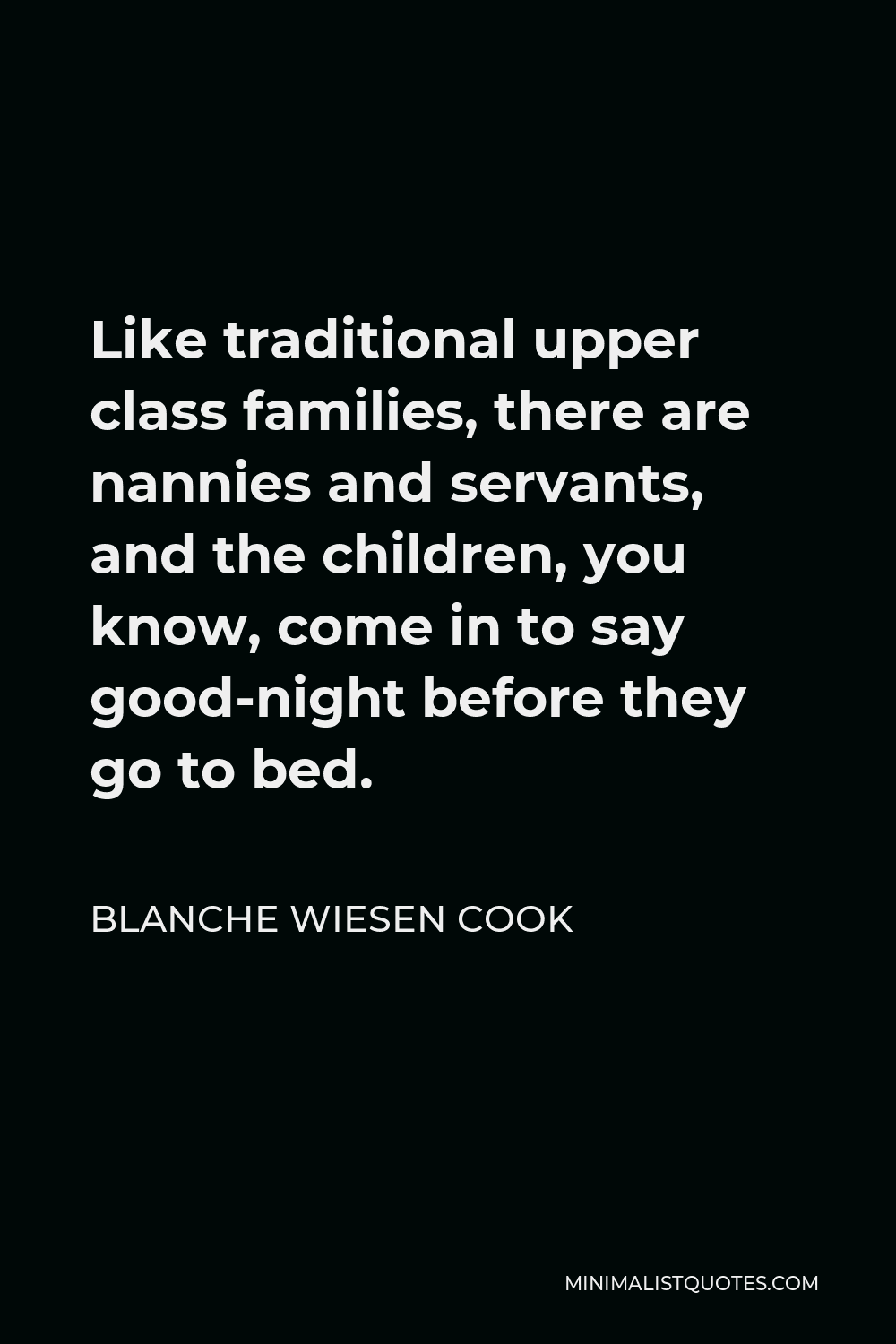
Like traditional upper class families, there are nannies and servants, and the children, you know, come in to say good-night before they go to bed.
BLANCHE WIESEN COOK -





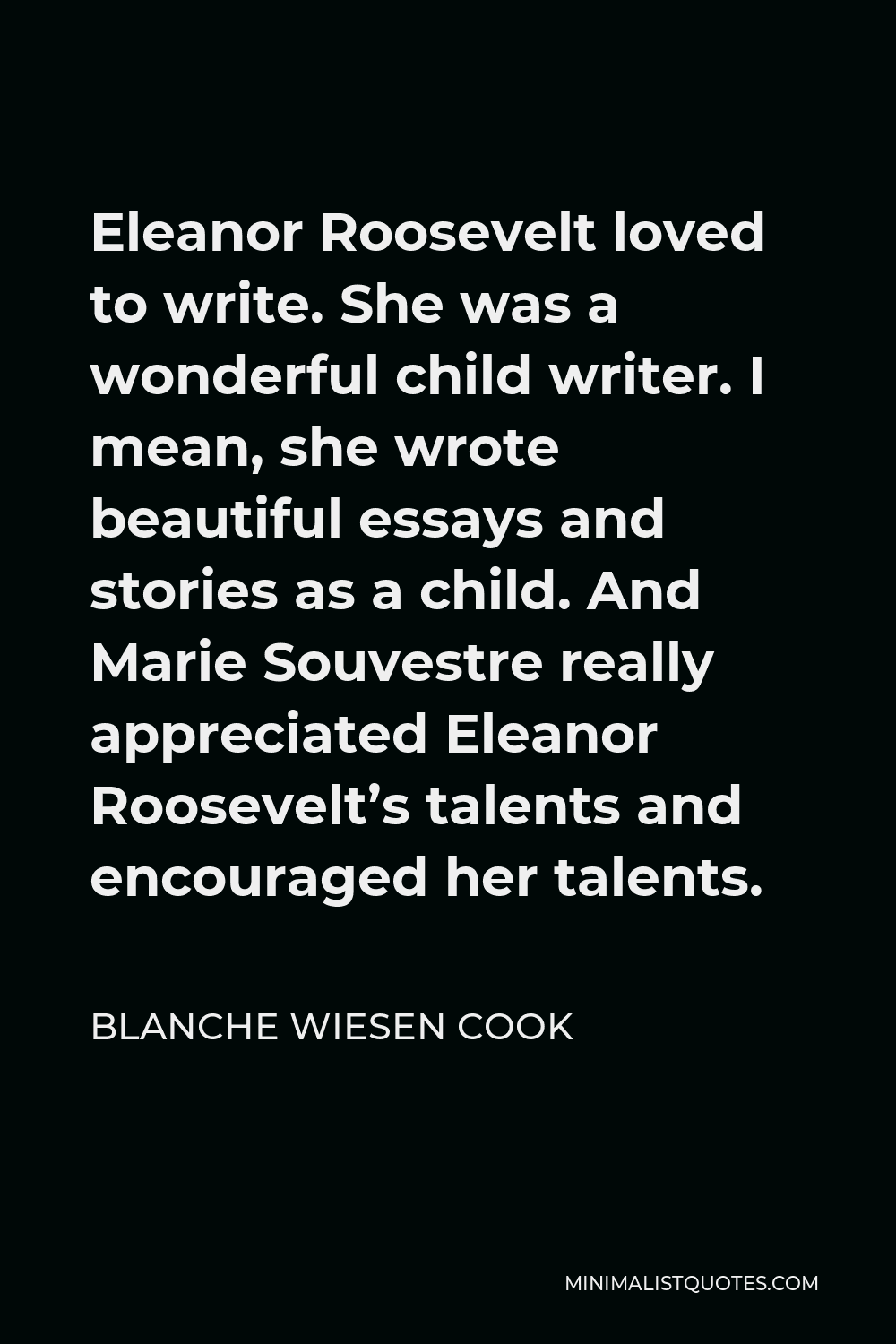
Eleanor Roosevelt loved to write. She was a wonderful child writer. I mean, she wrote beautiful essays and stories as a child. And Marie Souvestre really appreciated Eleanor Roosevelt’s talents and encouraged her talents.
BLANCHE WIESEN COOK -





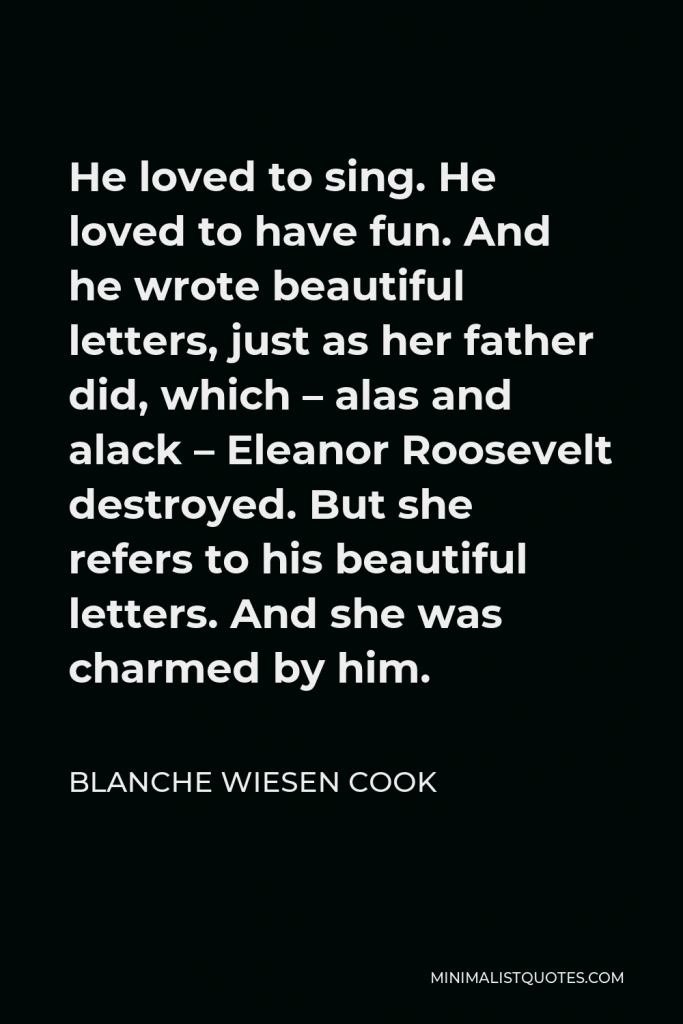

He loved to sing. He loved to have fun. And he wrote beautiful letters, just as her father did, which – alas and alack – Eleanor Roosevelt destroyed. But she refers to his beautiful letters. And she was charmed by him.
BLANCHE WIESEN COOK -





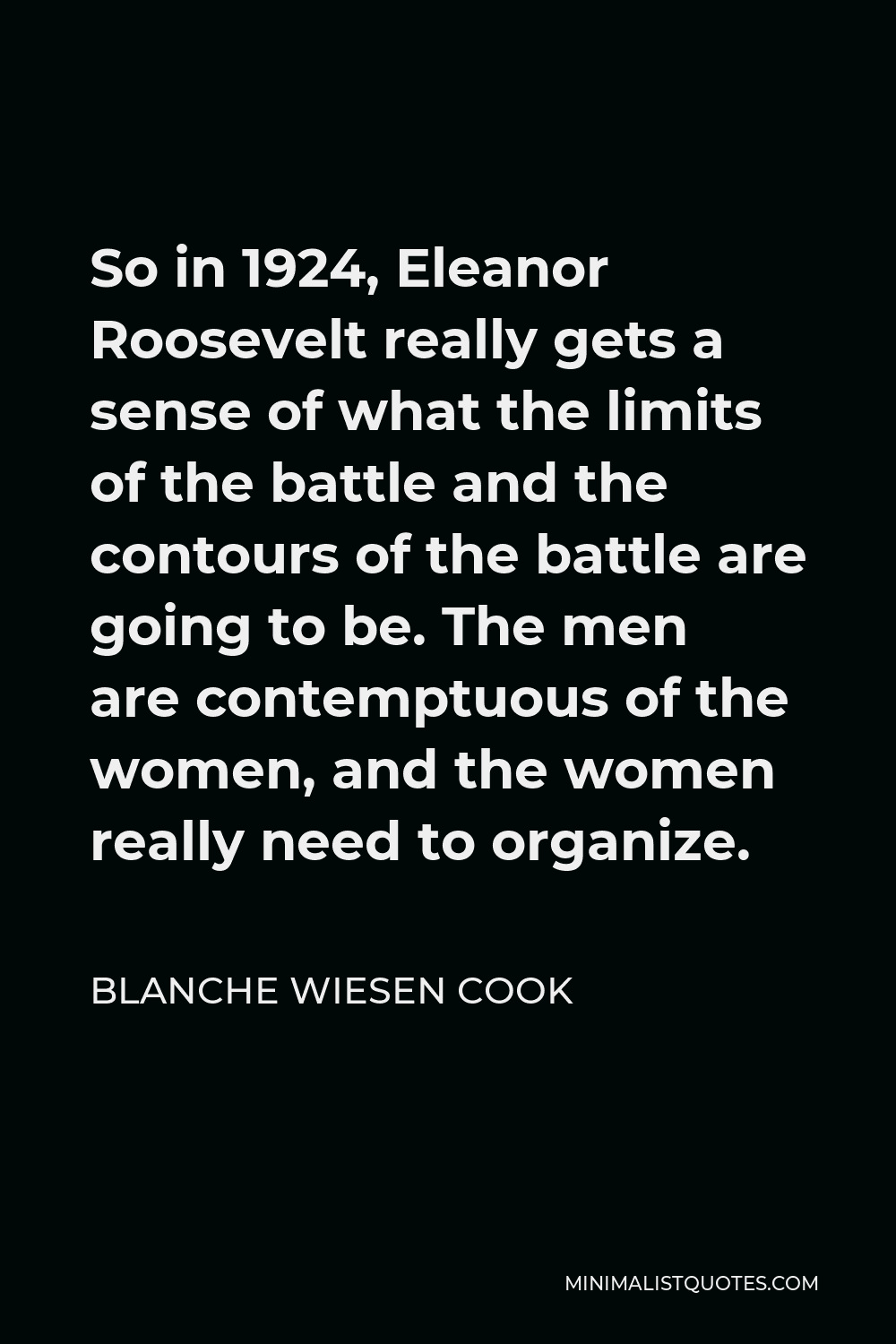
So in 1924, Eleanor Roosevelt really gets a sense of what the limits of the battle and the contours of the battle are going to be. The men are contemptuous of the women, and the women really need to organize.
BLANCHE WIESEN COOK -





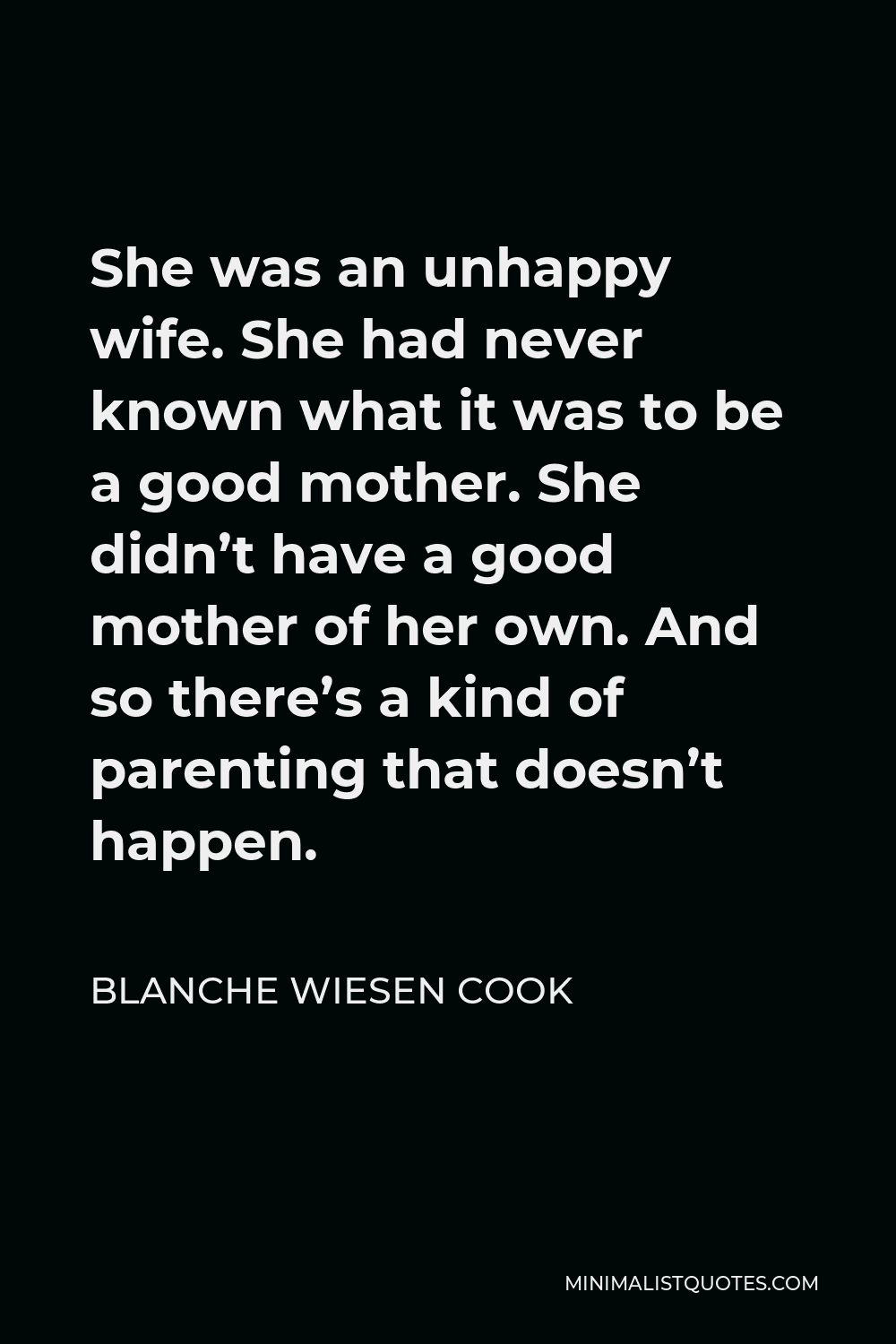
She was an unhappy wife. She had never known what it was to be a good mother. She didn’t have a good mother of her own. And so there’s a kind of parenting that doesn’t happen.
BLANCHE WIESEN COOK -





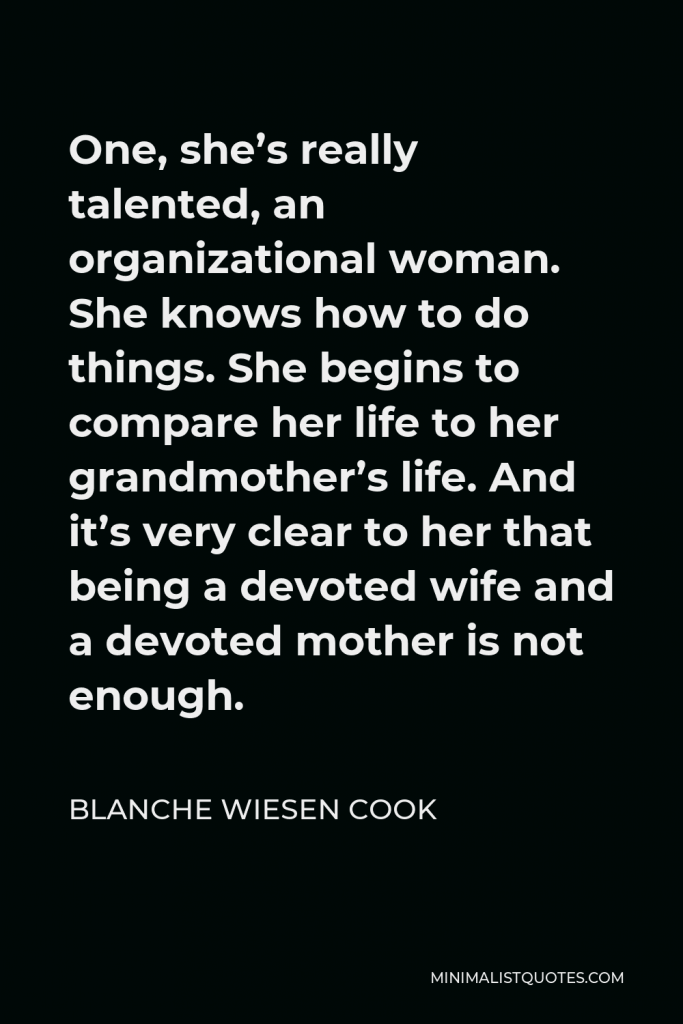

One, she’s really talented, an organizational woman. She knows how to do things. She begins to compare her life to her grandmother’s life. And it’s very clear to her that being a devoted wife and a devoted mother is not enough.
BLANCHE WIESEN COOK -





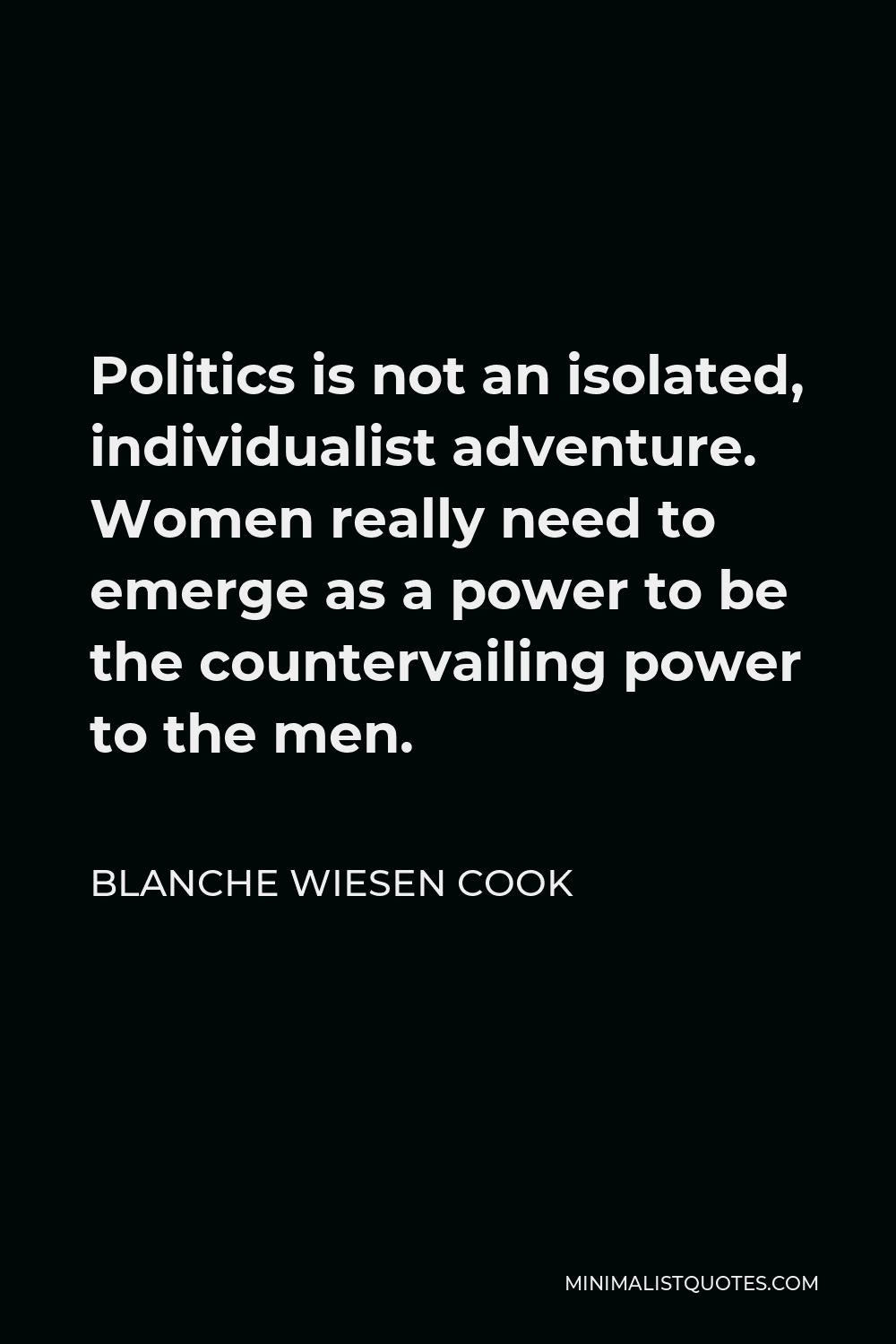
Politics is not an isolated, individualist adventure. Women really need to emerge as a power to be the countervailing power to the men.
BLANCHE WIESEN COOK -





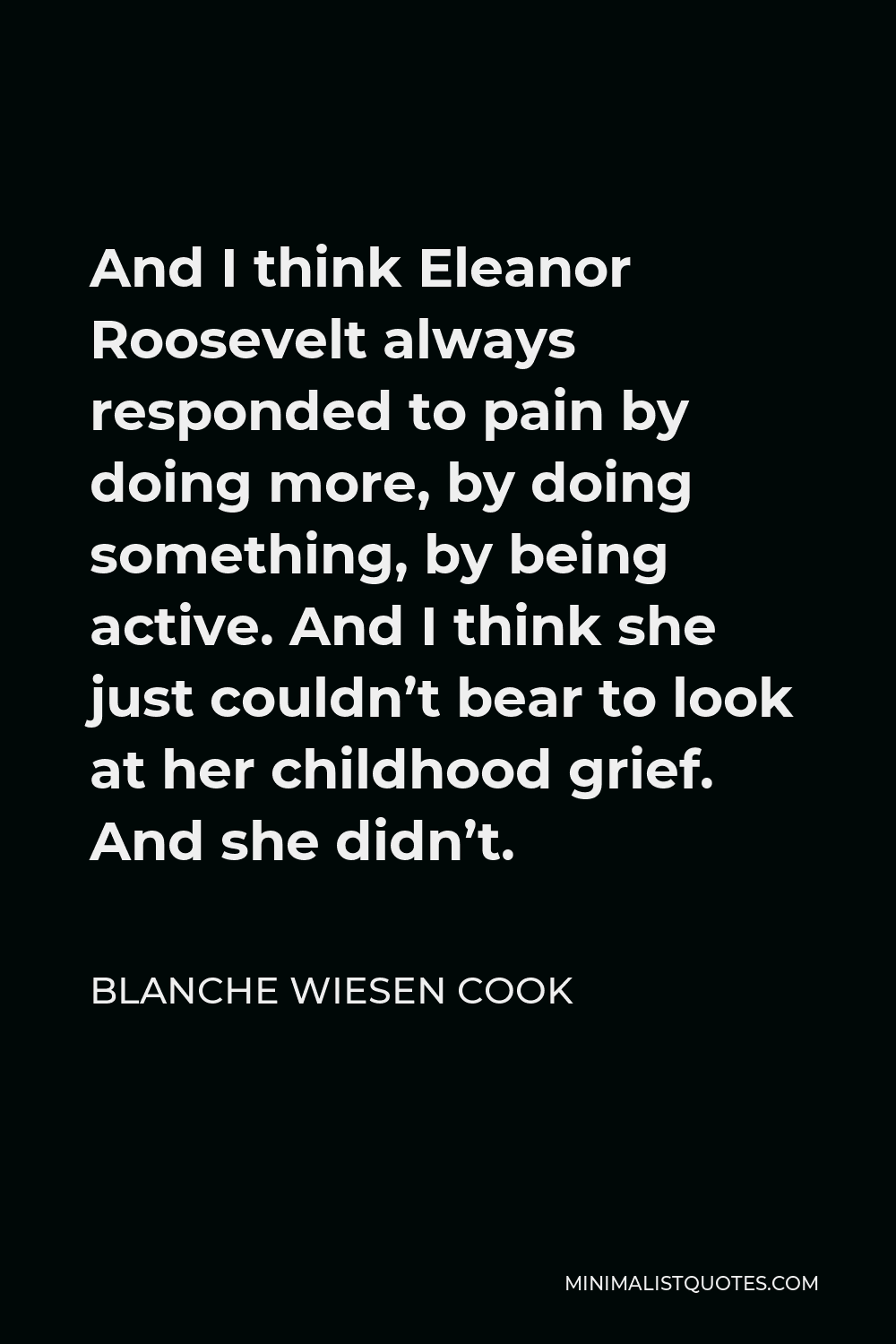
And I think Eleanor Roosevelt always responded to pain by doing more, by doing something, by being active. And I think she just couldn’t bear to look at her childhood grief. And she didn’t.
BLANCHE WIESEN COOK -





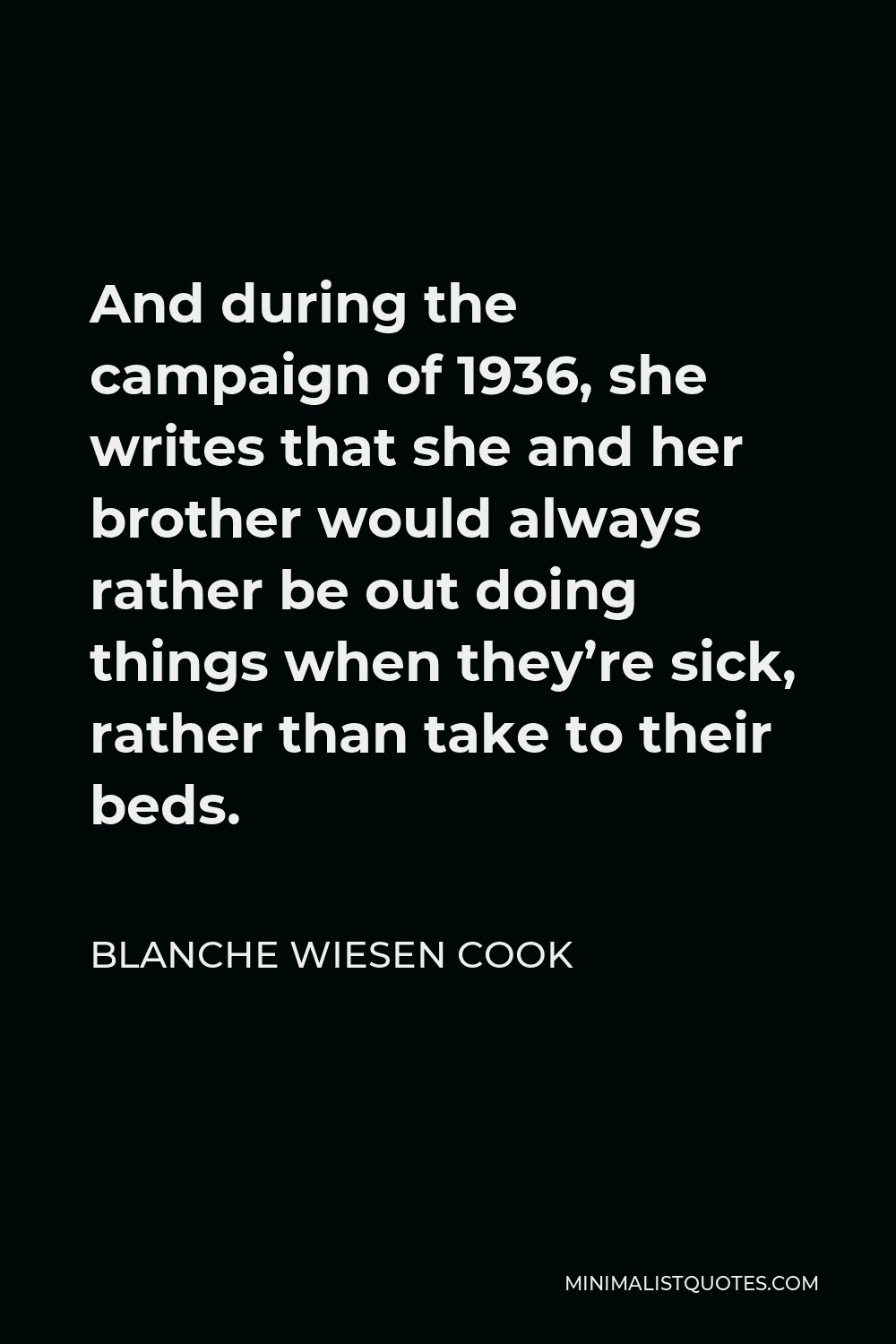
And during the campaign of 1936, she writes that she and her brother would always rather be out doing things when they’re sick, rather than take to their beds.
BLANCHE WIESEN COOK

